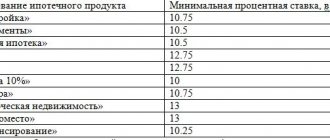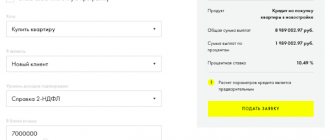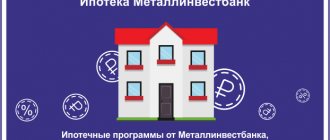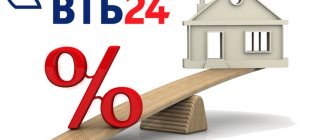Not everyone immediately has a large sum on hand, sufficient to buy an apartment or house. Therefore, migrants are becoming interested in lending conditions. Below we will try to figure out why a mortgage in Finland is beneficial, and how this country treats financing for foreigners.
Property prices in Finland
Finns are a people who prefer comfort in everything, including choosing suitable housing. By the standards of citizens of this state, apartments of 30 square meters. m belong to the small category. All real estate built since the 80s. last century, equipped with high-quality power lines and water supply.
The average area for residential properties is:
- 55 sq.m. for a two-room apartment;
- 70 sq.m. for a three-room apartment;
- 120 sq.m. for a cottage.
The highest price range is, naturally, in the large cities of Finland. The most difficult financial situation is to purchase an apartment in the capital of the country - Helsinki. Cost of one sq. m. in the city center is 2-3 thousand euros. By comparison, in other cities this figure drops to 1-1.5 thousand euros per square meter.
You can pay the least for housing in the so-called satellite cities (Vanta, Turku, etc.) and cities located near the Russian-Finnish border (Kotka, Hamina, etc.).
Land plots, especially those located near water, are popular among Finns for purchasing on credit. One of the most popular areas for building a private house is the waters of Lake Saimaa. So, you can buy a plot on its shore in the range from 500 to 3 thousand euros per one hundred square meters of land.
Ecologically clean areas in towns with small populations are in demand among foreigners. The price of cottages in such “green” places is steadily growing precisely because of the arrival of a large number of migrants, incl. Russians.
To purchase real estate, you often need a loan, and guarantees to secure it. This guarantee is a real estate pledge. Real estate can also be used as security for other debts. To register real estate as collateral, its owner must obtain a mortgage from the county court, which is evidence of confirmation of the collateral. The lender (for example, a bank) receives a mortgage right and becomes a mortgagee at the moment the mortgage is transferred to him by the mortgagor (real estate owner). Registration of a pledge in the form of an alienable or fractional share of real estate is carried out according to the same rules that apply to an independent property.
How is a deposit issued?
To register a pledge, the property owner submits a written application certified by his personal signature. This application is submitted to the county court at the location of the property. Application forms in Finnish and Swedish are available, among other things, at the county court office. Only the owner of the property can apply for a mortgage. An application for registration of a pledge can be submitted simultaneously with an application for state registration of ownership of real estate. The applicant can freely determine the amount of the deposit. Since there is no interest or other costs charged on collateral capital, the collateral amount generally must be greater than the amount borrowed. Several pledges can also be issued at once based on one application. After certification of the collateral, the mortgage is transferred either to the applicant or directly to the creditor (mortgagee) specified by the applicant. When storing a mortgage note, you must be careful, since this is the only document confirming the right of mortgage. Registration of real estate as collateral occurs by signing a pledge obligation and transferring the mortgage to the lender. Only its owner has the right to transfer real estate as collateral. The pledge obligation defines those debts for which the pledge will serve as a guarantee. If the guarantee relates only to housing debt or other specific debt, this should be reflected accordingly in the security bond. The lender is obliged to explain to his client the meaning and terms of the pledge obligation. The mortgage is valid until it is canceled and does not need to be changed, for example, in the case where the debt has already been paid and the mortgage is intended to be used as security for a new loan. The buyer of the property can also take advantage of mortgages already taken out by the seller.
Share link:
- Tweet
- Telegram
- by email
Similar
Mortgage terms
Mortgage lending is quite common in Finland. This is largely due to the loyal conditions towards its residents. Moreover, both residents and non-residents of the country have the same right to receive a mortgage. Of course, the offers for foreigners are slightly different, but compared to the credit programs of Russian banks, they will seem very profitable.
On average, the offer of Finnish credit institutions implies the following:
- The maximum loan size is 50-75% of the total cost of housing.
- Down payment – 25-50% of the loan amount.
- Duration – 10-35 years.
- Monthly payments are within 30% of the client’s average monthly income.
After purchasing a home using loan funds, the borrower immediately needs to register ownership. According to the mortgage agreement, this property is pledged to the bank.
If the terms of the agreement are violated, namely, non-payment of the debt, the bank has the right to sell the collateral apartment (house, plot) in order to cover the client’s debt. Repossession of housing is possible only by court decision. The creditor does not have the right to do this on his own without recourse to the Finnish judicial system.
The conditions differ depending on the chosen lender, the characteristics of the property (area, location, etc.), as well as the status of the borrower (resident, non-resident).
Conditions for lending in Finnish banks for non-residents
Loan conditions for local residents are among the most favorable in the world. However, unfortunately, they do not apply to non-residents. However, even non-residents are offered quite favorable lending conditions.
To obtain a mortgage in Finland, it is advisable for Russians to have a residence permit in this country. Then mortgages in Finland will become much more accessible, and the program will be more profitable.
General conditions of mortgage lending for non-residents:
- the maximum possible loan amount for real estate is 50% (rarely - 75%) of the total value of the property;
- first installment – ½ of the loan amount (sometimes – from 1/4);
- the maximum loan term is 10-35 years (usually it is no more than 10-20 years);
- monthly payment amount – maximum 30% of the borrower’s salary;
- the minimum interest rate for foreign borrowers, including Russians – 4-8% per annum;
- the need to register real estate after its acquisition;
- the need to present a residence permit and official confirmation of receiving a salary in Finland.
Specific loan terms will depend on the selected bank, loan program and other conditions.
Russians have the right to claim the same terms of the contract as other foreigners.
If the borrower is unable to repay the debt, the bank has the right to seize the collateral. He sells it at auction. He will use the proceeds from the sale to cover the remaining cost of the loan. But in order to put the property up for sale, a court decision is required. The bank simply cannot take away the collateral property from the borrower.
The interest rate can be floating or fixed for the entire loan term, depending on the program and the selected bank. Due to the constant decline in rates in Finland, most banks provide loans at a floating rate. A floating rate means that when repaying a loan, the interest rate will vary depending on changes in Euribor values. Although interest rates are currently on a downward trend, they may rise in the future. This may come as a surprise to the borrower. Before you decide on such lending conditions, you should consider whether you can cope with loan repayments if the market situation changes.
Interest rates
Different mortgage programs imply the use of a fixed or floating rate. There has been a tendency in the country towards a gradual reduction in interest rates on loans, so most often the conditions imply a floating rate. This indicator directly depends on the Euribor indicators.
Before concluding a contract, it is worth considering that the economic situation is constantly changing, and the overpayment on a mortgage may well increase. Therefore, it is important to calculate whether you will be able to pay the debt if the interest increases.
Residents can count on rates starting from 1% per annum, which seems simply incredible when compared with mortgage interest rates in Russia. For foreigners, the rate starts from 4-5% per annum, subject to compliance with all lender requirements and good solvency.
Often banks do not even pay attention to the temporary nature of the work if the industry has prospects for development. Therefore, a foreigner of any profession can eventually become the owner of his own apartment.
Citizens of the Russian Federation should be reminded that in our country there is a tax on material benefits from savings on interest on loans from foreign credit institutions. If in Finland the authorities are unlikely to pay your attention to this, then in Russia you may well encounter a number of problems if you do not pay the fee on time.
Features of mortgages for foreigners
The conditions for obtaining a mortgage in Finland for Russians are slightly different from what banks offer for residents of the country. Despite this, Finnish mortgage programs look much more profitable than domestic ones. Restrictions for migrants include:
- The maximum amount is up to 50% of the cost of housing.
- Duration – up to 10 years.
- Down payment – from 50%.
- Interest rate – 4-8%.
Foreign citizens and stateless persons who have a permanent residence permit in the country can count on such conditions. Persons with temporary stay/residence can only receive a regular loan, the repayment period of which does not exceed that allowed for staying on the territory of the state.
At the same time, banks are always ready to accommodate their clients and will certainly offer more favorable conditions if they confirm official earnings in Finland, a good level of income and a positive credit history.
Mortgage system in Finland
Like other European countries, Finland has had a developed mortgage system for a long time. This is due to the fact that in this country there is a stable state legislative framework
(Russia is still very far from this). If you take any credit institution, it certainly has the status of a commercial or mortgage institution. Any of them can provide a mortgage. The difference is that in mortgage banks the loan is issued at a higher interest rate. The fact is that narrow-profile financial organizations go to great lengths to minimize risks. In this regard, the loans provided for the purchase of housing provide for more stringent conditions compared to commercial banks.
The work of all credit institutions is controlled by the Finnish Mortgage Association
" At the legislative level, mortgage relations in Finland are determined by the Banking Act. It is worth noting that approximately 50% of all mortgage loans are provided by credit institutions to organizations for the purchase of not only commercial, but also residential real estate. The last amendment that was made to the mortgage system of this country was the abolition of strict control functions on the part of the state regarding the rental of premises. Some time ago, the state carried out constant monitoring of the rental market.
Requirements of Finnish banks for foreign borrowers
Requirements for borrowers differ depending on the chosen financial institution. Most often, Finnish lenders approve applications from foreign clients who meet the following characteristics:
- the person applying for a mortgage has the legal right to permanent residence in the state (residence permit);
- the age of the potential borrower is between 21 and 65 years;
- there is a permanent and official source of income;
- positive credit history with Finnish banks.
Each lender assesses the client’s solvency in its own way, so the result may be different, as well as the response to the application in the selected organizations.
To begin with, it is better to contact several banks at once to assess your chances of a positive decision on a mortgage. Then, if there is more than one approval, familiarize yourself with the programs in more detail and select one lender who will issue a list of documents necessary to conclude an agreement.
Basic principles of mortgages for non-residents
Non-residents planning to purchase real estate in Finland have the opportunity to obtain a loan from a bank in this country. Applying for a mortgage is no different from this process in Russian banks.
You need exactly the same:
- collect a package of documents;
- submit an application to a credit institution;
- make a cost estimate;
- take out insurance and so on.
Banks take up to two weeks to process a loan application on average. Foreigners in Finland can purchase not only an apartment, but also a private house or land plot with a mortgage. Although the purchased property becomes collateral with the bank, the borrower immediately formalizes ownership.
In case of non-payment of the debt, the creditor does not have the right to arbitrarily seize the property. This requires a court decision.
However, mortgages in Finland for Russians, as well as for other foreigners, have more stringent limits:
- The maximum loan amount will be 50% of the cost of housing;
- The rate ranges from 5 to 8%. It can be floating or fixed;
- Loan term – 5-15 years;
- The credit history must be impeccable both in Finland and abroad;
- The greater the share of the borrower's own funds, the higher the likelihood of a positive response from the bank. But the down payment cannot be less than 50%, less often – 30%;
- Loan currency – euro;
- The borrower's age at the time of repayment must not exceed 65 years. You can enter into a mortgage agreement upon reaching 21 years of age.
For comparison, the conditions for obtaining a mortgage by Finns are somewhat different. So, for example, the interest rate for them is 4-5%. They have the opportunity to get a mortgage for 20-35 years, and the amount provided is 70-90% of the cost of the purchased home
Important! To get a loan in Finland, a non-resident must have a residence permit and confirm receipt of income in this country.
This can be temporary or permanent work in the country, as well as a regularly replenished account in a Finnish bank. The borrower's income must be at least 2-2.5 times the expected monthly payment.
Required documents
An approximate list of information that will need to be submitted to the Bank of Finland to apply for a mortgage is as follows:
- Finnish residence permit
- The passport used to enter the country
- Certificate of income in the form required by the bank
- Confirmation of good credit history
- Valuation of housing that is planned to be purchased with borrowed funds
Additionally, some lenders ask to provide documents confirming the presence of valuable property in the homeland. This is perceived as a guarantee of fulfillment of loan obligations and is taken into account when assessing the borrower’s solvency.
All documents in Russian must be translated and notarized. Before transferring the documents, check that they are filled out correctly and correspond to one another (the name and other relevant information are spelled correctly).
What and where to buy
Political well-being, the absence of economic conflicts, comfortable transport links with Europe and convenient proximity to the Russian Federation push domestic citizens to buy meters in a foreign country. Crises in the world community do not affect housing prices in Finland.
Current offers
| Bank | % and amount | Application |
| Alfa Bank Mortgage | 6.5% Up to 45 million rubles. | Direct application |
| Rosbank Quick solution | 6.39% up to 25 million rubles. | Direct application |
| Bank Otkritie Large amount | 6.5% Up to 150 million rubles. | Direct application |
Loan without refusalLoan with arrearsUrgently with your passportCard loans at 0% Installment cardsEarning money from home
Commercial properties (hotels, shopping centers, warehouses and shops) have always been attractive. The most profitable purchase from the housing stock is a 1k or 2k apartment in Suomi. When you need to not only purchase meters, but also rent them out in the future, then it’s worth considering an offer in the center of Helsinki.
Loan without refusalLoan with arrearsUrgently with your passportCard loans at 0% Installment cardsEarning money from home
Houses and cottages would be an excellent investment in resort areas in Finland (Lahti and the coast near Kotka are in demand). Real estate prices are not falling, but they are also growing slowly, although in this case stability is only encouraging.
You should not think that in 5-7 years the deal will bring great enrichment, this is not the case. But such a purchase would be an excellent investment in a non-risky event when you need to preserve and slightly increase your capital. When a Russian stays on Finnish lands for more than a quarter, he needs to register and obtain a residence permit.
A big contribution to obtaining a residence permit will be the purchase of a commercial property. Receiving such a benefit entitles you to free medical care, education at universities and other privileges.
The acquisition of land or other real estate does not provide grounds for a residence permit, but it does provide a number of visa preferences. Let’s say you receive a multiple visa for 12 months with the right to stay on Finnish territory for 90 days in a six-month period.
Additional costs when registering a contract
When applying for a mortgage, in addition to the down payment, the borrower will have additional costs for completing a number of administrative procedures. In particular:
- the fee for assessing the selected housing is 200-300 euros;
- the financial institution charges a one-time fee for issuing money in the amount of 0.4% of the total loan amount;
- property insurance – depending on the insurance company;
- life, health and disability insurance is voluntary;
- Some estate agents charge an additional fee for the services of a mortgage broker - this is rare, but it is better to check in advance.
In total, the borrower will pay an additional 0.5-1% of the entire loan. The exact cost of the contract must be obtained from the lender. This can be done immediately after the application is approved, so that if the cost of the bank’s services is high, it can be quickly rejected.











